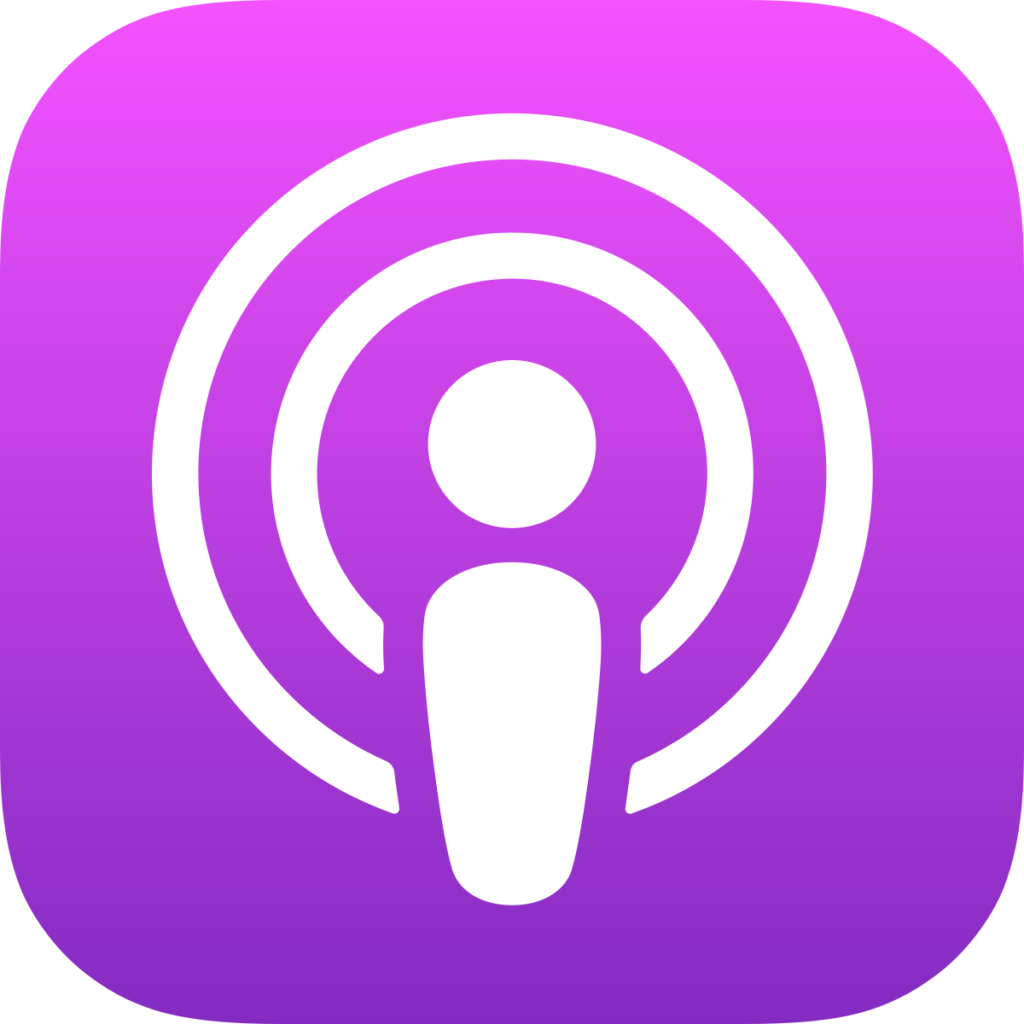Courtney Post: Hey everyone, I’m your host, Courtney Post, and this is Let’s Vet Together by Suveto. A show where we’ll be highlighting stories of growth, ownership, and well-being in the veterinary industry, and having real conversations about how we can make veterinary medicine better for everyone.
Hello, everyone! Before we get into our conversation today, I want to introduce you to our guest, Susan Carney. Each week we’ll be asking our guests to bring a treat from a local shop near them, so with that being said, Susan, what are you snacking on today? What treat do you have from your hometown? And, while you share that with us, also introduce yourself and tell us a little bit about who you are and really what is on your mind this morning.
Susan Carney: Perfect. Thanks Courtney. Hi everybody! Thanks for your time today and thanks for everything that you do each and every day. I’m Susan Carney, Well-being Manager here at Suveto. I live in New Jersey and people have certain opinions about New Jersey, but I will say, we have good snacks.
How about Saltwater Taffy? Sweet treat, right? And in advance of our get together, I did a bit of research, so quick history. Saltwater Taffy was actually invented in Atlantic City, New Jersey by accident actually.
CP: What was someone trying to make when they made Taffy? That’s so interesting when you really stop and think about it.
SC: He was actually making taffy, which, that was his product that he was selling on the boardwalk. Unfortunately, one evening a rogue wave came on the boardwalk and basically decimated his taffy shop. So, the next day people came to purchase it and he was all grouchy like, “Oh, it’s saltwater taffy.” So they ended up selling it. But they fixed it. There is actually no salt in saltwater taffy. That’s kind of a little bit of New Jersey history there.
CP: Susan, what is your favorite flavor of taffy?
SC: Oh my gosh. Lemon. Lemon. Yeah, it’s awesome.
CP: And is it a year round snack or is that typically a summertime snack? Because, I know, obviously the boardwalk in New Jersey is a summertime destination, but do people in New Jersey eat taffy year round?
SC: You can get it year round. And, by the way, little known secret: the boardwalk, to me, is the best in the winter offseason. It’s not crowded. The ocean is just amazing. You have it all to yourself. You can walk your dog, walk your family, so it’s a year round treat. It’s also available through a mail order.
CP: There you go. Susan is not being paid for the endorsement of this Saltwater Taffy.
So Susan, you mentioned at the beginning you are the Well-being Manager at Suveto, which stands for Supporting Veterinary Ownership. At Suveto, we have three pillars: ownership, growth, and well-being, and today, I want to talk all about well-being as well as who you are, why you do what you do, what brought you to this, and really what a typical day of a Well-being Manager is.
I know in our Suveto world, a lot of people know you and interact with you, but, in the broader veterinary community, you have so much perspective and knowledge to share, so today we just really wanna hear all about Susan, all about your role and what brought you here. Also, what resources are available just to make everyone stay a little bit brighter if they can’t get to the boardwalk and get some fresh air and get some taffy and spend some time with their dog?
SC: Sure. That’s great. And I appreciate that.
So, being a Well-being Manager is probably one of the best roles that I’ve personally ever had. I started my career in financial services way, way back in the day, which actually set me up to be, I think, a good person in HR and in this type of role. It’s a crazy busy atmosphere working on the trading desk and dealing with different emotions and different people and different situations. From there, I worked in HR and benefits for a long time and sat on all sides of the table. The insurance side, the consulting side, as well as the HR side. And, having the opportunity to work in the veterinary industry, being a pet mom, a pet lover, I volunteer at a shelter. It’s amazing. Wellbeing, you know, that term applies to everybody across the board, right? Not just us here in this industry. And I think what’s really important about it is that an anybody can do it. You just need to focus.
CP: Totally. It’s about putting, yourself first, as well as understanding healthy boundaries, understanding resources. How you show up for other people can impact their well-being as well, and it being a focus really just allows us to try to create a healthier atmosphere for everyone in our work life and personal life.
Susan, I’d love to to hear about you working in financial services on a trading room floor. When were you first aware that there was a place for well-being in the workplace?
SC: So, great question, Courtney. Believe it or not, back then, I recognized it because it was when the market was crazy, and things were going really well until they weren’t, right? I was, I was young, fresh out of college, a female, which there were hardly any females back then. Females were, you know, sort of not on the desk at the time. It was actually the first time I ever saw a grown man cry, when the market you know, had a crash. So, I think I’ve always been aware of that and trying to, hone your empathy, understanding. Some people have that high EQ, emotional quotient, and some people don’t. Some people very, very smart have amazing IQs, but don’t really understand, “Well, how can I hone that other side of me?” You know?
I mean, to your point, that’s looking out for each other. One quote that I think is so relevant: “You can’t do your best unless you’re at your best.”
CP: Yep. It’s very true. It’s very true. Work is dramatically impacted by the world around us and so many other factors. Who we are mentally and physically. If we are healthy. If we are supported. If we feel comfortable. If we feel safe. And how we then can support those around us can impact not only our personal life, but really our professional life and our output. Especially for veterinary professionals. Their jobs are to show up and care and provide for clients and for the amazing pet patients that walk in their door every day. It’s really hard to do when they are not feeling physically or emotionally or mentally supported or healthy.
I’d love to hear a little bit about your day-to-day, Susan. What does a Well-being Manager do? And then for all of those folks within the walls of any vet hospital, how do you best prepare yourself for a healthy self and a healthy workplace?
SC: Sure. My day-to-day, I’m happy to say, is never the same, which is a good thing. I like that. I like the opportunity to have different opportunities and different challenges each day.
The main focus of the job, though, is to source resources and support for our teams and their families. On a normal day, I’ll be working very closely with my fellow HR business partners and working with the practice managers or the hospital coaches on any myriad of issues. That could mean something like one hospital is having a particular issue with grouchy clients and their service team is getting beat up. Well, then how can we help support them and help them understand what healthy boundaries are? You know, doing your job but not getting screamed at. That’s never acceptable, right? So helping them, providing tips and resources on that.
All the way to getting a phone call like, “Hey, I noticed somebody on our team is just really not themselves today. They generally come in, and they’re really happy and perky and, and chatty, and I just happen to notice this person seems a little bit down. What can I do? How can we let them know that they’re not alone?” Which is a really big message. They’re not alone.
So, in addition to working directly with the leadership team like yourself and the executive leaders, our partners, I’m so happy when somebody reaches out directly to me to say, “Hey, I heard of something about you, Susan Carney. Is there something called an EAP or is there some resource if I’m struggling?
CP: Susan Carney is a celebrity within the Suveto network, and I think, thanks to this podcast, will probably soon be a celebrity within all of veterinary medicine. So, Susan has all the resources. I had the best mental picture when you were describing your day-to-day and what you do, Susan, is, I actually think you’re like the head librarian. If the library is full of mental health resources and well-being resources and things that will help make a self-healthy workplace, you would go and source what people need. Where does it lie? What books do they need? Obviously not literal books, but you know, more resources. You just know how to search through the endless library of resources and provide them for folks both reactively and proactively. I say reactively like a series of unhappy clients that are creating a hard environment, but also proactively like what we can do as a team to address creating healthy boundaries or mindfulness in the workplace. So it’s probably a mix of both reactionary work as well as proactive work.
SC: Courtney, you’re spot on and I will say it’s Suveto with well-being being one of the foundational pillars. It’s quite amazing because you can just feel that throughout the organization. Hospital coaches or practice managers proactively reaching out to me to say, “Can you just tell us what you do? We’ve layered people with the resources, but is there something else?” And even if that resonates with one person in that room, that’s amazing. That makes me so proud and so happy.
CP: It’s helping one person, Susan. You don’t have to move mountains to make impact. That one person has a ripple effect for sure.
SC: Yeah, for sure.
CP: What are some basic steps that folks can take? If someone was starting at the very beginning, like step one, not that there’s ever step one, right? We all bring our, our whole history of how we care for ourselves, how we show up for folks, how we communicate our wellbeing IQ, our EQ, like you said. But if you could rewind everyone and start in one place when you think about a holistic approach to wellbeing, like a couple tools, or steps, or fundamentals, what would those be? Because that’s a nice checklist for folks to be like, “You know what? Sometimes you have to go back to basics.” So, what are your words of wisdom on well-being fundamentals?
SC: I think I think the first thing is you want to acknowledge what you’re doing, right? Acknowledge all of the hard work that you’re doing, and be aware that you are doing a great job. You’re doing the best you can. But also be aware that you may not be getting to your full potential, and that’s okay! That is okay. It’s okay to not be okay. Starting from the beginning, I think you want to take a little check on yourself.
Some easy tips to do. Get up 15 minutes earlier. I know everybody has crazy days, crazy shifts, and whatnot, but that makes a huge difference. Get up. Do an extra stretch in the morning. And that’s time to check in with yourself, right? Focus on yourself. Take that 15 minutes, do that extra stretch. Do the plank on the floor. Take your dog out. Have a cup of coffee.
Maybe, we talked earlier about, commuting to work. Some folks drive to work. Depending on where you are, take that time for yourself. Listen to your favorite music. You owe that to yourself. Starting your day off right. Starting your day off on the right foot, and that’s gonna help you have a better experience with your patients, with your clients, and with your colleagues.
CP: I think the take time for yourself. You put that at the beginning of your day because no one can take it away at that point.
SC: Exactly. And you owe that to yourself. You deserve that. You owe that to yourself. You’re always making time for everybody else. You know what you need to acknowledge and take that time for yourself.
As the day goes on, the other thing that’s really important is that you need to take your breaks. It’s a crazy environment. I know that it’s tough if, especially if somebody has to have eyes on your patient. Of course that’s first. But you need to hydrate. We hear stories of people saying, “Oh my gosh, I didn’t drink any water. I didn’t eat lunch. I haven’t gone to the restroom in five hours.” Well, that’s a problem. You need to look out for yourself and also look out for each other because as you referenced earlier, part of well-being is the social connections. Look around and tap somebody else out, or encourage those folks to drink their water. I’ve been seeing more and more of the big gallon jugs of water. What a great approach for a whole practice or a whole office full of folks to say, “You know what, we’re gonna all commit to drinking water throughout the day. How can we make sure we all drink our water?”
But that’s gonna require people to take bathroom breaks and that’s okay. You know when folks say, “I can’t drink that much water. I have to go to the bathroom too often.” That’s okay. You need to use the restroom. You need to hydrate your body. And sometimes just taking the couple deep breaths and take a second for yourself. Really dial out for just a couple minutes to do that.
It’s also important to take breaks from technology as well. I mean, that’s another thing. Everybody’s 24/7. Everybody always has a phone in front of them, or five phones or whatever. I’m on one, I’m ringing one. I’m on a podcast over here.
No. Take a minute. You need to turn everything off. Especially at night. You don’t need that blue light shining there. I mean, if there’s an emergency situation, that’s one thing, but generally people are not having emergencies every minute of every day, so I think it’s really important to take that break.
And I think, again, as we referenced earlier, be aware of your surroundings and how you’re feeling. “I’m feeling tired,” or, “I had a situation with a patient.” Of course you’re feeling sad and depressed, and that is normal and that is true. However, notice for yourself if it’s going on for days and weeks. Pay attention to what your body’s telling you.
I think oftentimes we just keep going. We just say, “Gotta do it. I know that’s the job,” and that’s just really not healthy for anybody.
CP: No it isn’t. In your workplace or in your home life, too. You know that feeling overwhelmed, feeling run down. Yes, life can be really busy sometimes, but for that feeling to be a constant? That’s when you need to take some time to reevaluate. Take some time for yourself. Surround yourself with people that can help, or some resources that can help. And that’s what I would love to talk about.
Obviously everyone within Suveto has you as a resource as our Well-being Manager. Although well-being does often start with self, and someone taking the time to use the resources and tools that you help folks find. But for those outside of Suveto and in the vet industry as a whole, what resources are available? Like if I am feeling overwhelmed. If I am feeling sad past those days of being with a client that didn’t go well. If a personal interaction didn’t go well. What resources are available to folks?
SC: Yeah, that’s a great question. Well, one thing that’s pretty exciting that happened over the summer, you guys know 911, right? So, everybody knows when to call 911. When there’s an emergency. I need law enforcement. I need the fire department. 988. Put it in your phone right now. 988 is the National Lifeline. It’s 24/7. It’s not just for suicide prevention. It’s for any reason. It’s a national resource. Every single person. Your family members, your grandparents, your children. 988 is really key.
They can counsel you. You’re gonna be directly connected to someone that can help you sort through issues, and what they can do is connect you to a local resource. So, you know, I’m in Colorado and I’m calling, I’m struggling, and I’m feeling a certain way. They could connect me to somebody that’s local within my state or my city.
CP: I have to admit, Susan, I did not realize that that resource was available. You were teaching me something today. 988 is a resource available to anyone in any situation. When you think about 911, you call that number for lots of different reasons. There might be a medical emergency, you might need a police officer, you might need a firefighter.
You, you don’t need to, in the moment, think about what number to call. I just have one, and it’s 911. 988 is the same concept. It’s not just for suicide prevention. It’s also a, “Listen, I need help with this moment. I need some resources,” and that’s available no matter where you are.
SC: Exactly. So, that’s key. And then in addition, there’s other national resources that are available as well. There’s Mental Health America, which has tons of resources. It’s Mental Health America or MHA. They have self-assessment tests that you can take. They’ll connect you to, potentially, resources that are available in your community if you don’t have anything available through your employer, as we do here at Suveto.
There’s, there’s NAMI (National Alliance on Mental Illness). There’s lots of resources that are available. I would also suggest to people to look within your own city or town and just search “behavioral health services in (insert your city),” or “what’s a support group that could help me?”
The other thing that’s really important, and we’re very lucky to live in this country where they have this, is we have support groups that will meet us where we are. Maybe I’m struggling with not my own suicidal thoughts, but maybe I lost a loved one to suicide or know somebody that passed from suicide. There’s support groups out there that could help me as a widow or as part of the LGBTQ+ community. I wanna speak to somebody that’s like me. Or the Steve Fund for people of color, if you feel more comfortable with somebody that’s in your own affinity group. So there’s lots of resources that are out there that are really gonna help you meet you where you are.
And call me if you don’t know, because I can help you. I think that’s really important, right? Because you wanna feel comfortable. It’s a journey. It’s not easy to ask for help, especially the very high IQ people in our industry. Super smart, years of education and, you know, you are superstars, but we can’t always do it all.
CP: Yeah, and this industry is full of caregivers. It’s full of providers. It’s full of a selflessness that that can be unhealthy, and it’s time to put yourself first and make sure that you are using the resources available to you. Again, within Suveto, we have fantastic resources, but those resources are available whether you’re in Suveto or not.
And Susan, I think, just scratched the surface of what is out there, but you don’t have to go far to actually find them when you’re willing to look. So great.
Susan, before we wrap up, what is the one piece of advice that you’d give someone entering the vet profession now that you’ve worked in other industries and have found your home within the veterinary industry? I’m gonna ask everyone this question and I’m interested to hear your response.
SC: I think when you’re entering the profession, think about your why and what brought you there? Why did I go through all that education? Why did I go through all the training or the interviews or however you go to where you wanted to be. Try to hold onto that spark to remind yourself, “This is why I got into it.”
Things like I love animals. I wanna help make a difference in the world. I want to be part of my community. Right? After working in a shelter, maybe I want to give back. Nonprofit. I think that’s really important. To remember the why and hold onto that.
And think back. On hard days, go back to the why in moments that you’re feeling depleted, like it’s a power and celebrate on the days when you feel great. It’s not all about the sad days. There’s way more happy days, so celebrate those and say, “Hey guys, we’re a team. We’re in this together and here’s what’s happening.” Also, do all the cute, funny things together. We talked about, you know, drinking the water and hydrating. We actually had a hydration challenge and believe me, our team stepped up! We had some of our hospitals with the huge gallon jug drinking water. So try to make it fun. You deserve to be happy, so hold onto that, and on those days when you need support, know you’re not alone. Reach out. Support is available.
CP: Amazing, amazing words of advice. Susan. I appreciate it. I have my tips for myself. I’m gonna put these on my desk. Sometimes you need to make them the background of your phone. Sometimes you have to put ’em on the dashboard of your car, but it’s committing to myself 15 minutes earlier. Get up 15 minutes earlier for a little bit of time for myself before you give it to everybody else. Water. I’m drinking coffee right now. I need to switch over to water. The water throughout the day is great and remembering that 988 resource, I mean, that is really important. I wanna make sure I spread that word to those around me, my family and friends, that everyone should know that that resource is available. I hope everyone can listen to this time that Susan and I had together and also reflect back to their why, and to remember their spark and to celebrate that every day.
Susan, this was such lovely time together. And next time we get together in person, I think I need to try some taffy from your neck of the woods.
SC: You got it.
CP: Orange is my favorite flavor.
SC: Orange. Okay. I’ll remember that note to self.
CP: It’s like orange sorbet. It’s such a treat.
SC: Awesome. Well, thank thank you so much Courtney. This is amazing.
CP: This was super fun. I appreciate it.
SC: I do as well. Thank you so much. Thanks everyone for listening. Take careV






